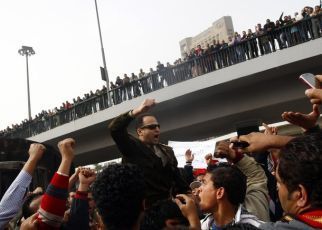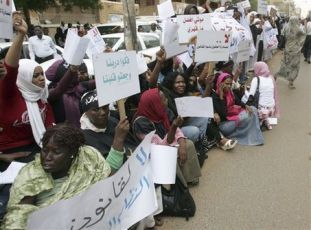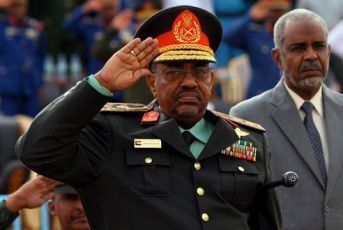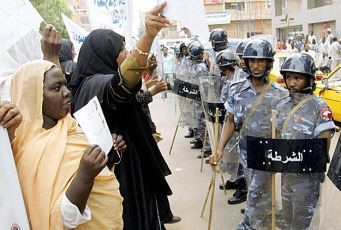Sunday’s demonstration in north Sudan; realistic expectations?
By Muhammad Osman
January 29, 2011 (NAIROBI) – Sudanese youth have been actively using online media to garner support for their planned demonstration on Sunday, 30 January, hoping to replicate the scenarios of the successful Tunisian revolution and the unfolding protests in Egypt.

Sudan is no stranger to successful public uprisings. In 1964, the October Revolution saw the end of General Abboud’s military regime and in 1985 when Jaafar Nimeiri was deposed by the military after another popular uprising.
By Saturday evening, more than 12,000 people have RSVPed to the invitation sent by one of the four Facebook-based pages created to publicize the planned protest. Emails and sms messages have also been extensively used. Thousands of posts created in the widely popular website www.sudaneseonline.com to urge people to the take to the streets.
Furthermore, organizers have even devised a contingency plan should the Sudanese authorities decide to follow the footsteps of their Egyptian counterparts by blocking Facebook and disrupt telecommunication.
Optimism may have its merits. The mood in north Sudan is remarkably glum as the general public begins to feel the sting of austerity measures instigated by the government to offset the economic impact of the secession of the oil-producing south Sudan which voted almost unanimously for independence in a referendum this month. Hiked prices of food and petrol products have already sparked student protests in Sudan’s central state of Al-Jazzirah and Khartoum University in mid-January.

Despite growing public dissatisfaction over economic conditions and the momentum this campaign is gaining, there are reasons to believe that the chances of this protest developing into an all-out uprising are slim; here’s why.
REGIME DEEPLY ENTRENCHED, FACED BY WEAK OPPOSITION
The ruling National Congress Party (NCP) might be feeling insecure – as evidenced by the recent arrest of Islamist opposition leader Hassan Al-Turabi – and perhaps petrified by the ongoing events in its northern neighbor but the NCP’s iron grip over all levers of power in the country has not waned. The party’s supporters abound in almost all public institutions, professional unions and media organizations.

“Better the devil you know!” a phrase often cited by many Sudanese in reference to the lack of an attractive option among the opposition whose current leaders are the same who ruled Sudan in previous eras, and failed dismally.
Mainstream opposition parties have been debilitated by the NCP which spared no efforts in creating rifts within their ranks, depriving them of economic resources and frequently arresting their leaders.
ARMY UNDER CONTROL
The Sudanese army, which played a major role in previous uprisings, has been systematically purged of all disloyal elements since the 1989 coup that brought Al-Bashir, then an army general, to power. It is common knowledge that the army has always been the mainstay of the regime in Khartoum, and that army is tightly controlled by Al-Bashir and his close aides – Defense Minister Abdul Rahim Muhammad Husain and minister of presidential affairs Bakri Hassan Salih.
NO SUPPORT FROM INTERNATIONAL COMMUNITY, SOUTH SUDAN
The international community, which brokered the 2005 peace deal between north and south Sudan, will likely be loath to support a change of regime in Khartoum that could lead the final phases of that agreement to unravel.
North and south Sudan are yet to thrash out a host of post-referendum arrangements, including oil revenues, currency, debts, borders and the status of the hotly contested border region of Abyei.
Similarly, the ruling Sudan People’s Liberation Movement (SPLM) in south Sudan will definitely be disinclined to support an uprising that could see the process of its transformation to an independent state be disrupted by a falling partner in the north.
USE OF EXCESSIVE FORCE

However, too-much force may backfire. And if the government does not use that force prudently and end up killing people, it might give the demonstration what it needs to make Khartoum go the way of Cairo and Tunisia.
The writer is an associate editor of Sudan Tribune. He can be reached on [email protected]
